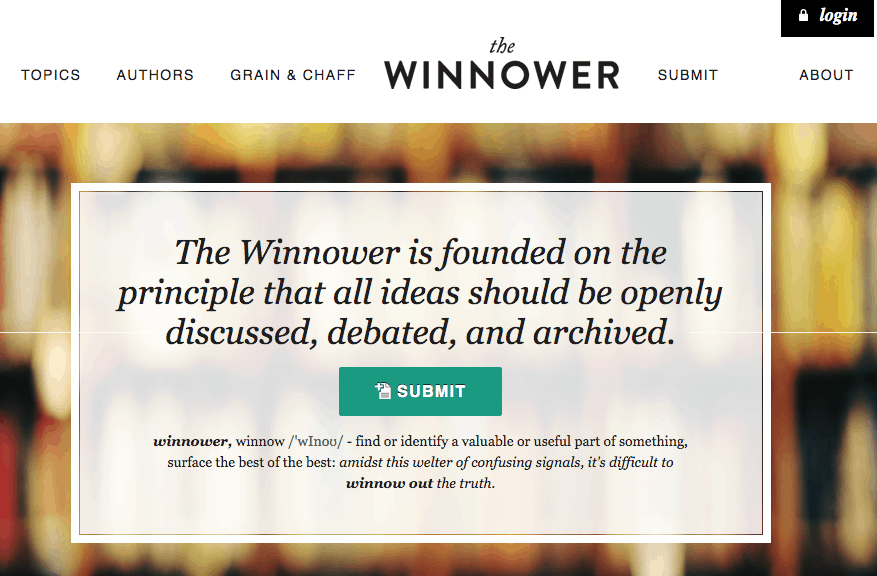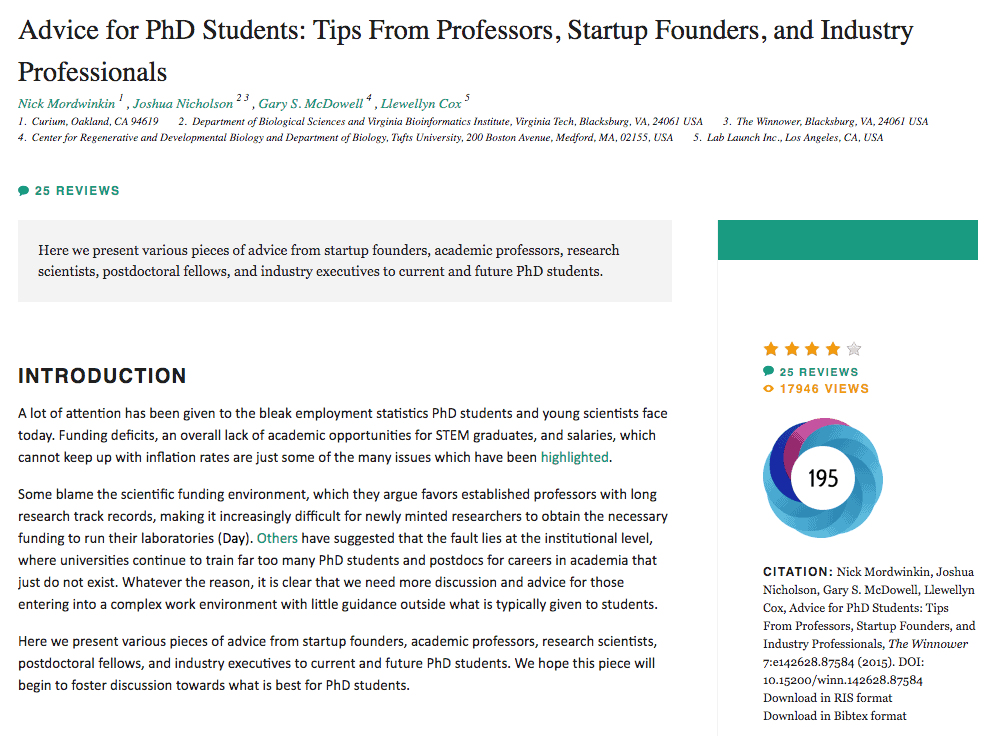- Profile
- Comments 0
- prev
- next
- Website
- Leave a comment
- prev
- next
In a nutshell
The Winnower is an open access online scholarly publishing platform that employs open post-publication peer review. We think transparency from start to finish is critical in scientific communication. Our aim is to revolutionize science by breaking down the barriers to scientific communication through cost-effective and transparent publishing for scholars.
Goals and intentions
The Winnower looks to turn the current system upside down with a platform that will foster transparency and communication by using open post-publication peer review for every paper we publish.
Project status
Types of outputs
Review process
-
Review requested byAuthors
-
Reviewer selected bySelf-nominated
-
Public interactionYes
-
Author responseNo
-
DecisionBinary decision
Review policy
-
Review coverageComplete paper
-
Reviewer identity known toEditor or service
-
Competing interestsNot included
Review features
-
Manuscript hostingYes
-
Notes
With The Winnower, the scientific publishing process has become a "do it yourself" (DIY) endeavor. Authors upload their finished work to the website, where it is then immediately available to be read and reviewed by the Winnower community. Once reviewed, authors will have the ability to revise their works before a final paper is posted and given a digital object identifier (DOI). Additionally, reviews will be open for the duration of the paper's life, while article-level metrics and the reviews themselves will track the importance and accuracy of the paper. Content published with The Winnower will be licensed under a CC BY 4.0 license.
-
Review of code or dataNo
-
Eligible reviewers/editorsAll who register
-
Tags or badgesYes
-
Criteria for inclusion
Publish your research, class essays, peer reviews, grants, letters, how-to articles, conference summaries, conference talks, blogs - whatever format you choose.
-
Cost25
-
Explanation of costhttps://thewinnower.com/memberships
Transparency
Results
-
Number of scholarly outputs commented on1,000-10,000





Add a comment